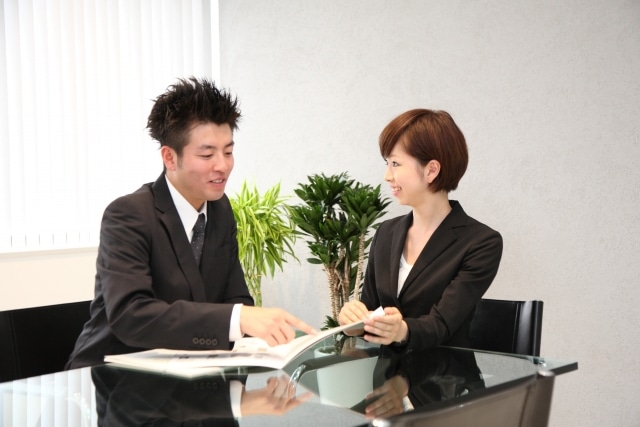Japanese Honorific Speech
‘Keigo’ for Beginners
BY KAORI NOMURA
August 31, 2018
“敬語 Keigo” is a Japanese honorific language, an essential type of language used in any professional context in Japan. If you are thinking of working in Japan, or to speak Japanese at a business level, it is imperative that you have a good knowledge of keigo. You will need to use keigo when speaking with your boss, your clients, or people who have a higher status than you.
There are three forms of keigo:
- 尊敬語 Sonkei-go
Sonkei-go (respectful language) is used when you speak to older people or your superiors. - 謙譲語 Kenjou-go
Kenjou-go (humble language) is used when you become humble to the listener - 丁寧語 Teinei-go
Teinei-go (simply polite language) is used when you mention to someone politely. Basically, “desu“, “masu“, “gozaimasu” are used at the end of the phrases.
Keigo is difficult, even for native speakers who may use the form incorrectly. In this article, I will introduce the common verbs of the three forms which are frequently used in business.
Verb: to do
|
尊敬語 sonkei-go Respective language |
謙譲語 kenjou-go
Humble language |
丁寧語 teinei-go Polite Language |
| なさる/される
nasaru/sareru |
させていただく/いたす
sasete itadaku/itasu |
します
shimasu |
| キャンセルされますか。
Kyanseru sare masu ka? (Would you cancel?) |
では、そうさせていただきます。 Dewa, sou sasete itadaki masu. (Well. I will do so) |
Verb: to speak / to say
|
尊敬語 sonkei-go Respective language |
謙譲語 kenjou-go
Humble language |
丁寧語 teinei-go Polite Language |
| おっしゃる/言われる
ossharu/iwareru |
申し上げる/申す
moushiageru/mousu |
言います
iimasu |
| 山田様がおっしゃっていました。
Yamada-sama ga osshatte imashita. (Mr.Yamada said.) |
深くお詫び申し上げます。
Fukaku owabi moushiagemasu. (I sincerely apologize.) |
Verb: to come
|
尊敬語 sonkei-go Respective language |
謙譲語 kenjou-go
Humble language |
丁寧語 teinei-go Polite Language |
| いらっしゃる/おいでになる/お越しになる/お見えになる
Irassharu/oide ni naru/okoshi ni naru/omie ni naru |
伺う/参る
ukagau/mairu |
来ます
kimasu |
| 鈴木様がいらっしゃいました。
Suzuki-sama ga irasshai mashita. (Mr.Suzuki has come.) |
明日3時に伺います
Ashita san-ji ni ukagai-masu. (I will come at 3 o’clock.) |
Verb: to see / to look
|
尊敬語 sonkei-go Respective language |
謙譲語 kenjou-go
Humble language |
丁寧語 teinei-go Polite Language |
| ご覧になる
goran ni naru |
拝見する
haiken-suru |
見ます
mimasu |
| この書類をご覧(になって)ください。
Kono shorui wo goran (ni natte) kudasai. (Please have a look this document) |
御社の資料を拝見しました。
On-sha no shiryou wo haiken shimashita. (I had a look your company’s material.) |
Verb: to hear
|
尊敬語 sonkei-go Respective language |
謙譲語 kenjou-go
Humble language |
丁寧語 teinei-go Polite Language |
| お聞きになる
okiki ni naru |
伺う/拝聴する
ukagau/haichou-suru |
聞きます
kikimasu |
| 一点、お聞きしてもよろしいでしょうか。
Itten okiki shitemo yoroshii desu ka. (May I ask one thing?) |
その件に関しましては、先日伺いました。
Sono ken ni kanshi mashite wa senjitsu ukagai mashita (Regarding the matter, I’ve heard the other day.) |
Verb: to read
|
尊敬語 sonkei-go Respective language |
謙譲語 kenjou-go
Humble language |
丁寧語 teinei-go Polite Language |
| お読みになる
oyomi ni naru |
拝読する
haidoku-suru |
読みます
yomi-masu |
| もうお読みになられましたか。
Mou oyomi ni narare mashita ka? (Have you read it yet?) |
その書類は拝読しました。
Sono shorui wa haidoku shimashita. (I have read the document) |
Verb: to understand
|
尊敬語 sonkei-go Respective language |
謙譲語 kenjou-go
Humble language |
丁寧語 teinei-go Polite Language |
| おわかりになる/ご理解いただく
owakari ni naru/gorikai itadaku |
かしこまる/承知する
kashikomaru/shouchisuru |
わかります
wakarimasu |
| ご理解いただき、ありがとうございます。
Gorikai itadaki arigatou gozaimasu. (Thank you for your understanding.) |
かしこまりました。
Kashikomari mashita. (I understood/Certainly.) |
Verb: to know
|
尊敬語 sonkei-go Respective language |
謙譲語 kenjou-go
Humble language |
丁寧語 teinei-go Polite Language |
| ご存じ/お知りになる
gozonji/oshiri ni naru |
存じ上げる/存じる
zonji ageru/zonjiru |
知っています
shitte imasu |
| ご存知でしたか。
Gozonji deshita ka. (Did you know that?) |
存じ上げません。
Zonji age-masen. (I don’t know.) |
Verb: to give
|
尊敬語 sonkei-go Respective language |
謙譲語 kenjou-go
Humble language |
丁寧語 teinei-go Polite Language |
| くださる
kudasaru |
差し上げる
sashiageru |
あげます
agemasu |
| 山田様がくださいました。
Yamada-sama ga kudasai-mashita. (Mr.Yamada gave us.) |
よかったら差し上げます。
Yokattara sashiage-masu. (I will give you if you want.) |
Verb: to eat
|
尊敬語 sonkei-go Respective language |
謙譲語 kenjou-go
Humble language |
丁寧語 teinei-go Polite Language |
| 召し上がる
meshiagaru |
いただく/頂戴する
itadaku/choudai-suru |
食べます
tabe-masu |
| どうぞ召し上がってください。
Douzo meshiagatte kudasai. (Please eat.) |
では、いただきます。
Dewa itadakimasu. (Well, I will eat.) |
The form of keigo is not only for verbs, but also for some nouns. Below are selected words and phrases which are necessary for keigo expression.
| English | General Japanese | Keigo |
| who | だれ dare |
どなた様 donata-sama どちら様 |
| that person over there | あの人 ano-hito |
あの方 ano-kata あちら様 |
| How is it? | どうですか。 Dou desu ka? |
いかがですか 。 Ikaga desu ka? |
| What should I do? | どうしますか。 Dou shimasu ka? |
どうなさいますか。 Dou nasaimasu ka? |
| Is that okay? | いいですか。 Ii desu ka? |
よろしいでしょうか。 Yoroshii deshou ka? |
| sorry | すみません。 Sumimasen. |
申し訳ございません。 Moushiwake gozaimasen. |
| Excuse me…
*before you start a conversation |
すみませんが… Sumimasen ga… |
恐れ入りますが… Osoreirimasu ga… |
| there is not | ありません arimasen |
ございません gozaimasen |
| I can’t | できません dekimasen やれません |
いたしかねます itashikanemasu |
| I don’t know | 知りません shirimasen |
存じません zonjimasen |
| I understand | わかりました wakarimashita |
かしこまりました kashikomari-mashita 承知しました |
When you talk about yourself and when you call your client, keigo is also used.
The keigo of “I” and “our company
| English | When you call yourself | English | When you call your clients |
| I | 私/わたくし
watashi/watakushi |
You | ○○様/あなた様
○○sama/anata-sama |
| Our company | 弊社/当社/小社/私ども
hei-sha/tou-sha/shou-sha/watakushi-domo |
Your company | 御社/貴社
on-sha/ki-sha |
The Japanese words for job titles, such as “社長 sha-chou” (Company’s President)、”部長 bu-chou” (Manager/Departmental Head) are already honorific words so you cannot use these when talking to the people outside of your company. You have to call them without their titles, using only their surnames.

Scenario: You were talking to your client on the phone.
- The usage below is wrong!
田中社長ですか。いらっしゃいます。
Tanaka-sha-cho desu ka? Irasshai masu. - The usage below is correct!
田中ですか。おります。
Tanaka desu ka? Orimasu.
BUSINESS
JAPANESE CLASS




